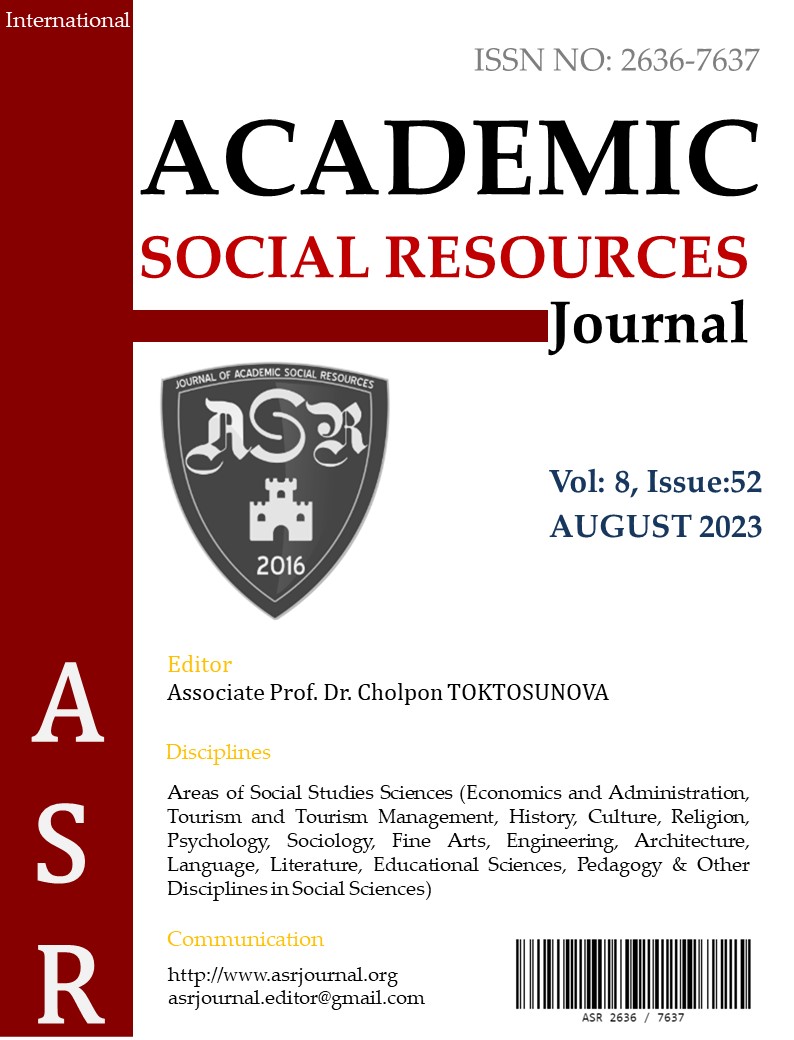Author :
Abstract
Bu çalışmanın amacı öğretmenlerin gözünden öğretmenlik mesleğinin toplumdaki yerinin değerlendirilmesidir. Bu çalışmada nitel araştırma yöntemlerinden fenomenoloji deseni kullanılmıştır. Araştırmanın çalışma grubunu, kolayda örneklem yaklaşımı kullanılarak araştırmaya dâhil edilen 10 öğretmen oluşturmaktadır. Veri toplamak için yarı yapılandırılmış bir görüşme formu kullanılmıştır. Araştırmacı verileri elde etmek için yüz yüze görüşmeler gerçekleştirmiştir. Görüşme formundan elde edilen ham veriler, veri analizinde kullanılmak üzere yöntemsel olarak hazırlanmıştır. İçerik analizi ile verilerin değerlendirmesi yapılmıştır. Araştırma sonuçlarına göre, Öğretmenlik mesleğinin toplumdaki yeri katılımcılar tarafından değeri azalan, rehber olarak görülen ancak daha iyi olabileceği düşünülen bir meslek olarak algılanmaktadır. Öğretmenlik mesleğinin toplumsal yerini olumlu yönde etkileyen faktörler arasında çocukların öğretmenlere teslim edilmesi, güven duygusu, mesleğin kutsal algılanması, topluma örnek olma ve iyi mesleki koşullar yer almaktadır. Öğretmenlik mesleğinin toplumsal yerini olumsuz etkileyen faktörler arasında ekonomik koşullar, olumsuz veli tutumu, yetersiz özlük hakları, teknolojinin etkisi, medyadaki olumsuz haberler, öğretmen eğitimindeki sorunlar ve iş yükü fazlalığı yer almaktadır. Öğretmenlik mesleğinin toplumsal yerini geliştirmeye yönelik öneriler arasında ekonomik iyileştirmeler, çalışma koşullarının düzeltilmesi, mesleki gelişimin desteklenmesi, okul dışı aktivitelerin sağlanması, yasal düzenlemelerin yapılması, medya yayınlarının denetlenmesi ve öğretmen atamalarının düzenlenmesi yer almaktadır
Keywords
Abstract
The aim of this study is to evaluate the place of the teaching profession in the society through the eyes of teachers. In this study, phenomenology design, one of the qualitative research methods, was used. The study group consisted of 10 teachers and parents who were included in the study using a convenience sampling approach. A semi-structured interview form was used to collect data. The researcher conducted face-to-face interviews to obtain data. The raw data obtained from the interview form were methodologically prepared to be used in data analysis. The data were evaluated by content analysis. According to the results of the research, the place of the teaching profession in society is perceived by the participants as a profession whose value is decreasing, which is seen as a guide, but which is thought to be better. The factors that positively affect the social position of the teaching profession include handing over children to teachers, sense of trust, perception of the profession as sacred, being an example to the society and good professional conditions. Factors that negatively affect the social standing of the teaching profession include economic conditions, negative parental attitudes, inadequate personal rights, the impact of technology, negative news in the media, problems in teacher training and excessive workload. Suggestions for improving the social position of the teaching profession include economic improvements, improving working conditions, supporting professional development, providing out-of-school activities, making legal regulations, controlling media publications and regulating teacher appointments





